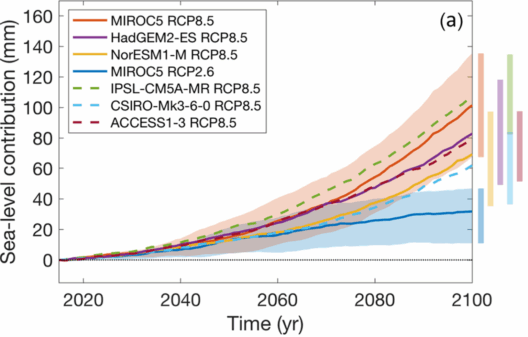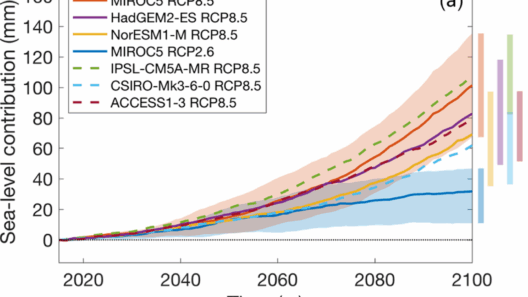As the world grapples with the increasingly dire implications of climate change, the repercussions extend far beyond polar ice melt and rising sea levels. Global warming has become a significant health concern, placing human physiology under unprecedented strain. As temperatures soar, the intricate web of environmental conditions that dictate our health is disrupted, leading to a plethora of personal health challenges.
Every degree of warming alters the delicate balance of our ecosystems. Increasing average temperatures augment the frequency and intensity of heatwaves, which can have catastrophic outcomes for vulnerable populations. The elderly, children, and those with pre-existing health conditions are particularly susceptible to heat-related illnesses. The human body cannot efficiently regulate its temperature in extreme heat, leading to conditions such as heat stroke, dehydration, and even death. In urban areas, where the heat island effect magnifies temperatures, these risks are further exacerbated.
The correlation between climate change and respiratory ailments has become increasingly evident. Rising temperatures contribute to elevated levels of ground-level ozone, a dangerous air pollutant that exacerbates asthma and other chronic respiratory conditions. Poor air quality—inspired by higher temperatures and increasing wildfires—presents a dual threat. Not only does it directly affect the lungs, but it also has serious implications for cardiovascular health. Studies have demonstrated that exposure to particulate matter can trigger heart attacks and strokes, creating an insidious link between climate and cardiovascular disease.
Mental health is another domain where the toll of global warming manifests. The psychological repercussions of experiencing extreme weather events—such as hurricanes, floods, and wildfires—can induce post-traumatic stress disorder (PTSD), anxiety, and depression. Moreover, the long-term existential dread stemming from the climate crisis can lead to eco-anxiety, a pervasive form of worry particularly acute among younger generations who feel burdened by the prospect of an uncertain future. Such mental health challenges are compounded by social isolation and displacement resulting from climate-related disasters.
Alongside these tangible health effects, the shift in climate patterns disrupts food security and water supply, leading to malnutrition and dehydration. Prolonged droughts and erratic precipitation patterns threaten crop yields, escalating food prices and making access to nutritious food increasingly difficult, particularly for low-income populations. Such nutritional deficiencies can lead to cognitive impairments in children and exacerbate chronic health issues in adults. Water scarcity not only affects hydration but also hygiene, increasing susceptibility to waterborne diseases.
Vector-borne diseases are undergoing a transformation as well. Warmer temperatures create conducive environments for disease-carrying organisms such as mosquitoes and ticks. As these vectors expand their geographical holdings, illnesses that were once localized to specific regions, such as malaria and dengue fever, become global concerns. Consequently, populations previously unfamiliar with these diseases now face emergent health crises, stretching the capabilities of public health systems.
The global nature of these health issues starkly underscores the interconnectivity of our modern world. Inadequate public health responses in one region can have ripple effects worldwide. Disease outbreaks can easily cross borders, necessitating global cooperation to fortify public health infrastructures in anticipation of climate-induced health emergencies. This interdependence underscores the urgency for policies that emphasize climate resilience through sustainable practices.
In recognizing the corollary between climate change and health, it is imperative to integrate public health considerations into climate mitigation strategies. Comprehensive frameworks must be developed that address health inequities exacerbated by climate change. Adequate funding for preventive health measures, embracing both traditional public health solutions and innovative strategies informed by climate science, is fundamental. Communities must be equipped to not merely respond to, but expect the health impacts that accompany a changing climate.
Individuals also hold a crucial role in this paradigm shift. Small-scale actions collectively contribute to a more robust response to climate-related health risks. By prioritizing environmental sustainability, individuals can help mitigate climate change’s advancement. Supporting local agriculture, reducing waste, utilizing public transportation, and advocating for environmental policies can catalyze significant change. Each decision made in daily life can ripple outward, promoting a healthier planet.
In summary, the health ramifications of global warming are vast and multifaceted, affecting everything from our physiological well-being to our mental health and food security. In this context, the stakes could not be higher. One’s health is inextricably linked to the health of our planet. The mounting evidence calls for immediate and coordinated action—an urgent recalibration of priorities where public health and climate solutions coalesce. The toll of inaction is not merely a future concern; it is a current reality that demands our attention. Protecting our health cannot be decoupled from protecting our environment—each action we take today reverberates into an uncertain tomorrow.







